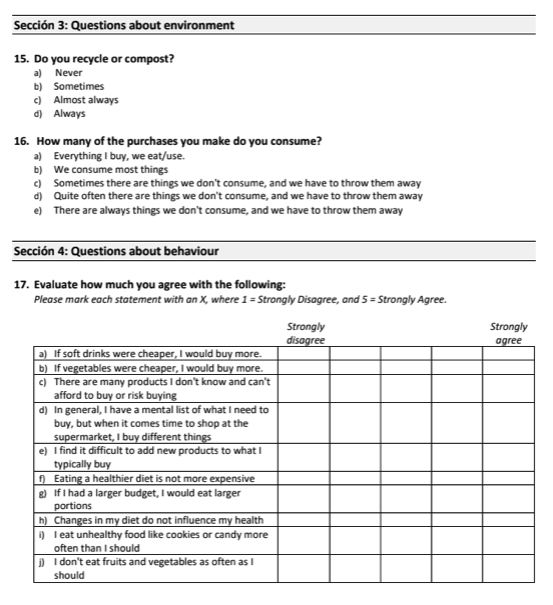Within the United States and other high income countries, most food waste happens at the household level. In low- and middle-income countries, however, the bulk of food waste occurs at the supplier level, before it ever reaches the consumer. As global food waste accounts for 12% of overall greenhouse gas emissions, the development of scalable strategies for reducing waste along the supply chain is crucial. Can new approaches to food waste simultaneously promote better health outcomes for people with limited resources?
This dual question is the focus of new research led by Daniela Paz Cruzat through the Initiative on Equity in Energy and Environmental Economics, which supports PhD students and undergraduate research apprentices in collaboratively investigating critical questions of energy, environment, and economic opportunity. With the help of two undergraduate mentees, Vanessa Perez and Jessica Yu, Paz Cruzat is working to evaluate “Imperfectas pero Buenas,” or “Imperfect but Good,” an initiative from Walmart Chile aimed at improving customers’ access to nutritional foods while also reducing food waste. By selling produce that does not meet Walmart’s standard shape and color requirements at lower costs, the initiative intends to reduce food waste from agricultural suppliers, who would otherwise waste the 5-15% of their produce considered noncompliant. Selling produce at a reduced price might also reduce barriers to adequate nutrition for low-income consumers, supporting improved health outcomes.
Figure 1: Section 3 of Daniela’s questionnaire for customers asks about environmentalism, while Section 4 features questions eliciting preferences around grocery shopping.
“Imperfect but Good” has rolled out gradually in Latin America: the program was piloted in 7 Chilean grocery stores in September 2022, and Walmart has since expressed intentions to scale the program to additional stores and countries. To empirically measure the program’s effects, Daniela’s will leverage this variation to compare the outcomes of similar consumers and firms who were exposed to the initiative at different points in time. Merging scanner-level product data provided by Walmart Chile (which documents details including product name, brand, price, and discounts) with data on customers enrolled in the Walmart loyalty program will allow Paz and the research team to link purchases to individual characteristics and control for variables including age and gender. Daniela will then supplement data from Walmart with a survey of 2,000 loyalty program members to elucidate the effects of nutritional knowledge, environmentalism, and individual preferences on consumption and program success. At the firm level, Daniela is also working with Walmart to access data from agricultural suppliers that spans firm-level characteristics and transactions, to better understand how the initiative has affected their growth and experience.
Working with a large, private entity like Walmart has presented Daniela with challenges, but also tremendous opportunities for impact at scale. As Walmart had no plans for an impact evaluation of “Imperfect but Good,” Daniela saw an opportunity to offer help – but had to secure buy-in from Walmart leadership. “We started following people on LinkedIn…trying to get our first contact to make other contacts. After a long time, there was one person who clicked with our idea, [and] that was the person who manages the data.” Despite facing initial hurdles related to data access, Daniela is optimistic about the potential impact of the project, due to Walmart’s position as a large, multinational firm, with a growing presence in Latin America. “The size of Walmart…the environmental impact they could have is huge.
Through the Initiative on Equity in Energy and Environmental Economics, Daniela is also guiding her undergraduate mentees as they explore options for graduate school, internships, and careers in energy and environmental research and policy. For Jessica Yu, a senior beginning the graduate school application process, Daniela shared insights on important factors like grades, recommendation letters and exams required. Senior Vanessa Perez, who supported the project by collecting novel data about produce suppliers and translating materials from Spanish to English, entered the mentorship program aspiring to work on sustainability in the private sector, making Daniela’s project a natural fit. While Daniela’s mentees have developed their technical skillsets throughout the project, Paz emphasized the importance of a mentor-mentee relationship that caters to the bigger picture. “I feel that undergraduates are a bit alone…with decisions, where to work, how to ask people for a meeting, what to ask in the meeting, how to write an email…For one of our mentees, it was her first experience coding with real data. That’s great, but it’s also the people you know, the contacts, the networking…that [support] can be extremely valuable.”




